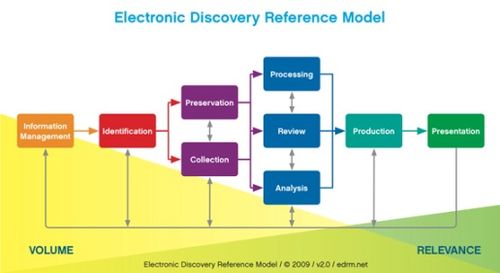A Marriage Made for eDiscovery: EDRM and ARMA
A Marriage Made for eDiscovery: EDRM and ARMA https://cloudnine.com/wp-content/themes/cloudnine/images/empty/thumbnail.jpg 150 150 CloudNine https://cloudnine.com/wp-content/themes/cloudnine/images/empty/thumbnail.jpg
As discussed in our recent two-part series on eDiscovery standards, there is a growing movement to develop industry standards, frameworks, or reference models to help manage eDiscovery. This week, there was perhaps a major move in that direction as the Electronic Discovery Reference Model (EDRM) and ARMA International announced that they would be collaborating on information governance guidelines for eDiscovery.
read more





